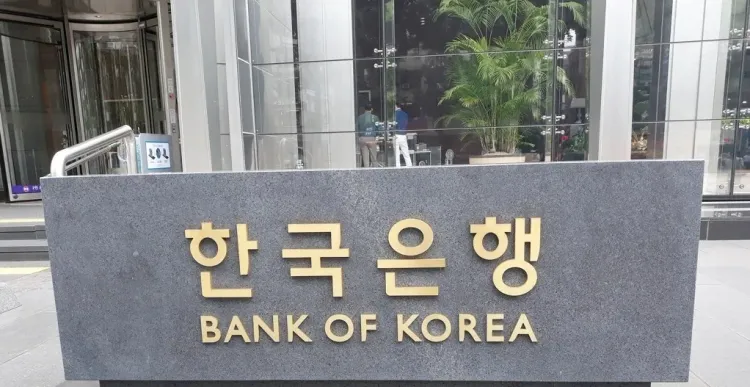How is South Korea's Household Loan Growth Accelerating Amid Debt-Fueled Investments?

Synopsis
Key Takeaways
- Household loans in South Korea increased significantly in October.
- Investment loans have surged amid a strong stock market.
- The government has tightened lending regulations to manage household debt.
- There has been a notable trend of borrowing for stock investments.
- Policymakers are vigilant regarding financial stability and market trends.
Seoul, Nov 13 (NationPress) Despite the implementation of stricter lending rules, the growth of household loans issued by South Korean banks saw a significant increase in October, driven by a surge in investment loans amidst a robust stock market, as indicated by central bank data released on Thursday.
As of the end of October, the total outstanding household loans reached 1,173.7 trillion won (approximately US$798.9 billion), reflecting an increase of 3.5 trillion won compared to the previous month, according to information from the Bank of Korea (BOK).
This represents a notable acceleration from the 1.9 trillion-won growth recorded in the preceding month, as reported by Yonhap news agency.
Loans secured against homes rose by 2.1 trillion won from the prior month, totaling 934.8 trillion won at the end of October, although this growth slowed compared to the 3.9 trillion-won increase in the preceding month. Meanwhile, unsecured and other household loans grew by 1.4 trillion won, reaching 238 trillion won.
According to a BOK official, the slowdown in mortgage growth is attributed to a decline in demand for jeonse loans, as well as reduced housing transactions during July and August due to regulatory measures.
However, there has been a rise in credit and other loans primarily due to an uptick in investments in both domestic and international stocks, a surge in preemptive home purchases leading up to the October 15 housing market measures, and increased funding needs during the prolonged Chuseok holiday.
There is a noticeable trend of investors utilizing loans to capitalize on the stock market rally, with the benchmark Korea Composite Stock Price Index (KOSPI) soaring nearly 70 percent this year, fueled by government-led reforms and optimism surrounding the artificial intelligence (AI) sector.
During a press briefing on Wednesday, Financial Services Commission (FSC) Chairman Lee Eok-won stressed the importance of risk management, noting that the recent uptick in credit loans does not seem to contribute to an overall rise in household debt or threaten financial stability.
Additionally, data revealed that corporate loans increased by 5.9 trillion won in October, reflecting an acceleration from the 5.3 trillion-won rise in the previous month.
Outstanding corporate loans reached 1,366 trillion won as of the end of October.
Policymakers are closely monitoring trends in the property market and household debt, as apartment transactions in Seoul rebounded to approximately 86,000 in September, compared to around 41,000 in both July and August.
To address the overheated housing market and rising household debt, the government introduced a new set of measures last month, designating 21 additional districts in Seoul as speculative zones, bringing the total to 25 districts under stricter regulations.
The government also tightened lending rules, reducing the mortgage loan cap to as low as 200 million won.









